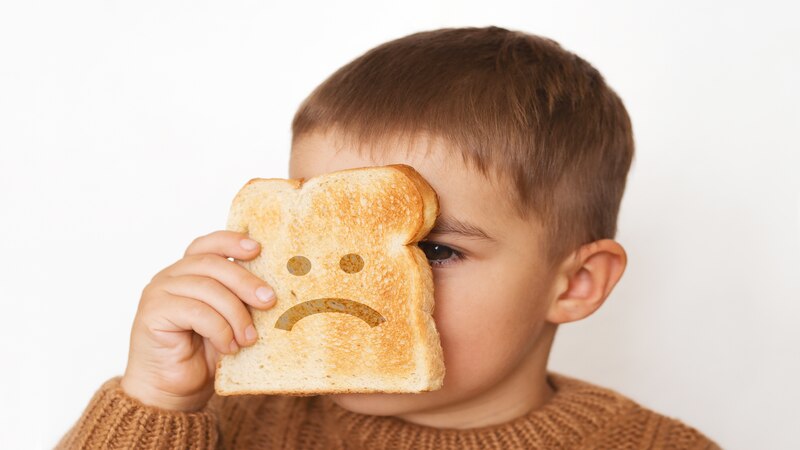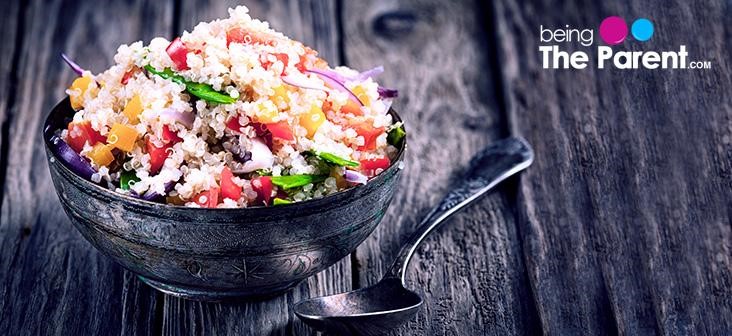
Does your toddler fuss over food and have persistent tummy upsets? Could it be a reaction to a certain food item that he had recently? Now you must be wondering how an innocent bowl of porridge, wheat halwa, soft chapatis or simple grains can do any harm to your toddler! If you are pondering over this, some useful information about gluten allergy can help you tackle the allergy situation better.
As a mother of a toddler, a food intolerance is the last thing you want your little one to have and arresting this condition is a good idea. If you manage it the right way, with the right diet plan and information, then gluten allergy can never affect your toddler’s quality of life.
Read this article to find out all you need to know about the symptoms of gluten intolerance, celiac disease, the right diagnosis, and what you can do.
What is Gluten?
Wikipedia defines gluten as, “a composite of storage proteins termed prolamins and glutelins and stored together with starch in the endosperm (which nourishes the embryonic plant during germination) of various grass-related grains.” Gluten is found in wheat, barley, rye, and oats.
Gluten Allergy
A gluten allergy—not to be confused with gluten sensitivity or celiac disease—is mainly caused by gliadin, along with glutenin. Gliadin is also one of the major allergens associated with wheat allergies.
Symptoms of gluten intolerance in toddlers
The symptoms of gluten intolerance in toddlers are very different as opposed to adults. Gluten intolerance among toddlers can be mild, moderate, or severe. The following signs can help you to decipher if your toddler has a possible gluten intolerance:
- Eczema
- Agitation and mood swings
- Headaches
- Fatigue
- Weight loss
- Abdominal pain
- Vomiting
- Gastrointestinal issues like constipation or diarrhoea
What is Celiac Disease in children?
Celiac disease is an autoimmune disorder that affects the digestive system. If your child has this disease, it means that his immune system reacts to gluten by attacking the lining of his small intestine. As a result, his body will be unable to absorb nutrients from the food that passes through the damaged small intestine. Thus, he may become weak and malnourished.
Is gluten an intolerance or allergy?
Sometimes as a layman, we may not have a clear understanding about gluten and whether to treat it as an intolerance and stop giving anything to our babies that contain gluten or to look at it as an allergy and take the necessary steps to combat the effects of gluten on your toddlers. Consult your pediatrician to diagnose the problem and take the right course of action.
How gluten allergy can be diagnosed?
The best way to arrest the issue of gluten intolerance in children is to remove it completely from their diet. Next, just wait and watch if the symptoms improve.
A gluten-free diet may be quite intimidating initially, especially if your family’s staple food is wheat, but it is worth the elimination if it comes to your child’s well-being. Opt for gluten free foods that are healthy and nutritious like millets, poha, chicken or vegetable soup.
Consult a dietician
Consult your child’s doctor or a child health nutritionist if you find that your child has gluten intolerance. Work closely with the specialist to develop a food plan before making any changes to his diet. Your child’s dietitian can help you develop a nutritious eating plan that fits your lifestyle. She can even suggest some yummy recipes that your child would love.
Develop a food plan for gluten free diet in baby’s food
Once you have diagnosed your child’s gluten allergy, develop a healthy gluten free diet for him. Remember, just because a food is gluten-free does not mean it is healthy.
Ask your toddler to help you in the kitchen so that he can see mommy preparing healthy and fresh food.
The idea is to stay away from wheat, rye, and barley. Most pastas, pizza, cereals, breads, and baked chips are not gluten free. So, please read the labels while grocery shopping in order to take well informed decisions.
Avoid eating out and strike out processed foods as much as possible. Gluten can be found lurking in readymade soups, soy sauce, hot dogs, salad dressings etc.

Stock up your kitchen with plenty of whole foods like fish, meat and poultry, fresh fruit, vegetables, dairy products, and nuts. These are naturally gluten-free and are good for your family. A toddler should not miss out on her daily dose of essential nutrients and nourishment because of gluten intolerance or allergy. Understand, identify, and diagnose the condition and then devise an interesting and healthy meal plan for your active toddler that is not just nutritious and gluten-free but loaded with deliciousness. Present it in a way that will appeal to a toddler and see your little one gobble it up with glee.

